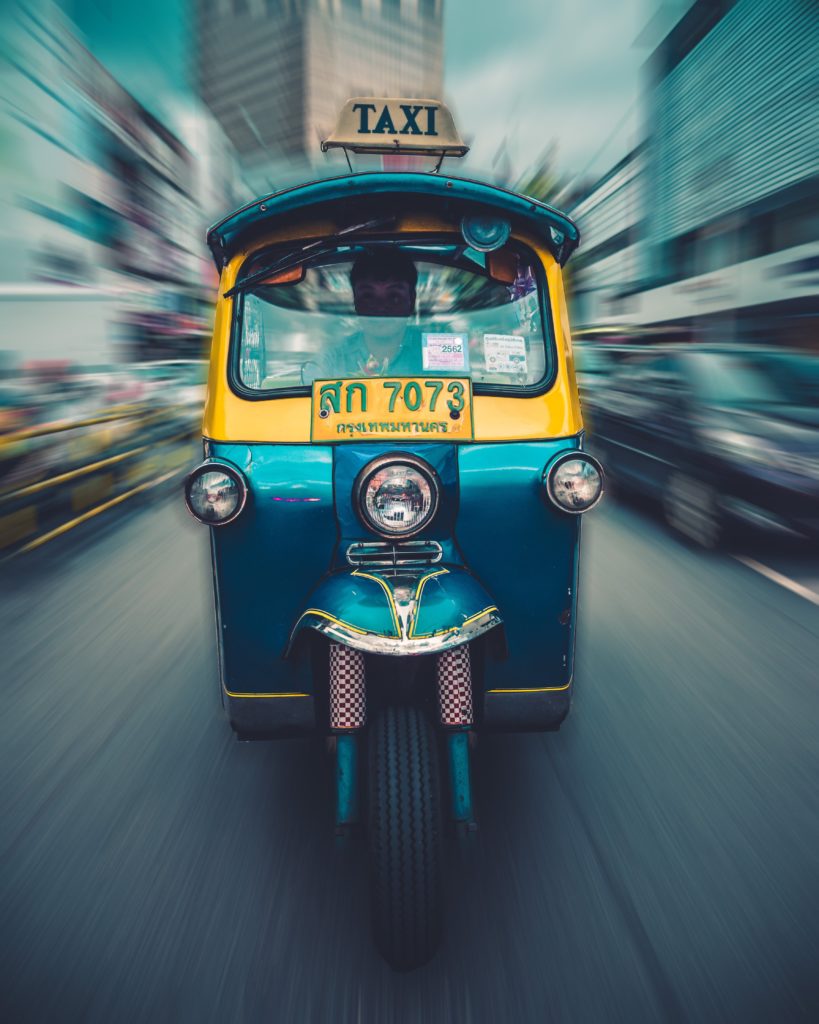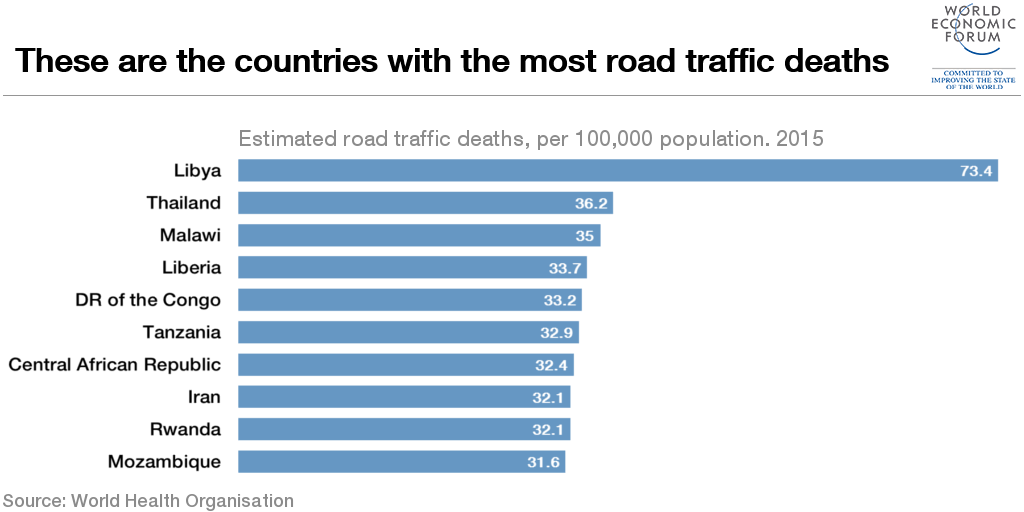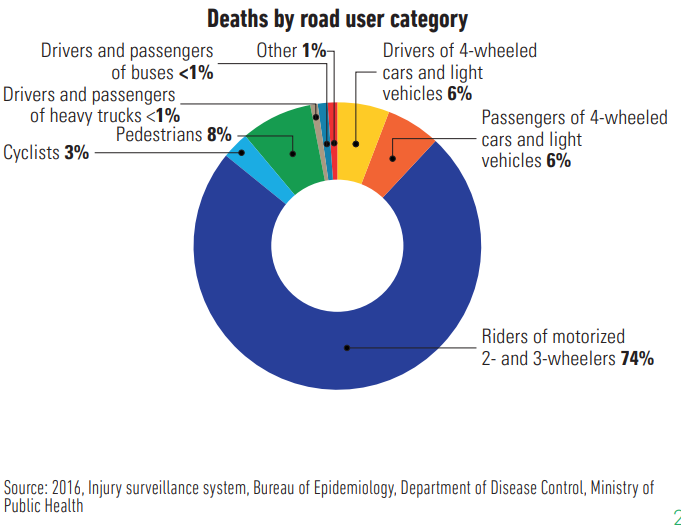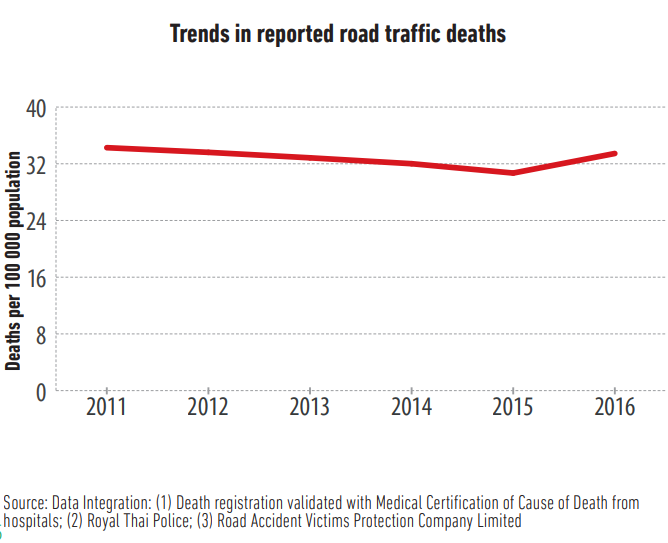
As a final birthday gift to myself I had scheduled a three hour massage appointment at a local spa – absolute bliss and a major highlight of living in Bangkok! Baby was in good hands and I was so looking forward to it. I headed off down the street with a spring in my step in anticipation of the delights that awaited. Just before I reach the spa door, I get a shock seeing and hearing a motorbike skidding horizontally across the ground and its biker falling off onto the road.
A woman is knocked to the ground in the middle of the road. The traffic stops passing by. I step out onto the road to try and help the woman up off the ground. She was a pedestrian crossing the road when she was knocked over by the biker. By some miracle she manages to stand up herself and limps across to the other side of the road. Other than a bit of limp she seems to have emerged from this accident incredibly well – she could have been killed. The biker on the other hand is still lying on the ground clutching his knee. Thankfully he is wearing a helmet (many bikers do not).
I stand in the middle of the road in front of his bike to try, along with another biker and taxi driver, to protect them from continuing traffic flow and divert it around the scene of the accident. There is almost no patience in Bangkok for road accidents taking up space on the road and blocking continuing traffic flow. Two men manage to lift the biker to the edge of the road – despite the fact that in this situation a person should not be moved until and ambulance has arrived in case there may have been damage to their spine. Cars start to flow again in the side lane past me, and past the fallen motorbike. Once the biker is off the road, I step back onto the pavement on the other side.

I watch as other local bikers and taxi drivers stay with the fallen biker. I know they will be able to provide much better help than I at this stage. I don’t know who to call, I don’t speak the language, I don’t know how the healthcare system works here. It is in these moments that you realise you are a true outsider. When it really matters, you don’t know what to do, say, or how things work. I hope what I had already done had helped a little. And I believe that since these accidents are unfortunately so frequent on the roads of Bangkok, that there is a protocol (social rather than legal probably) that Bangkokians know to follow in this situation.
Flashbacks of when I was knocked over by a motorbike in Bangkok
As I start to walk away I realise my chest is heaving and my eyes are filled with tears. I am reminded of the time that I was the pedestrian hit by the motorbike 9 years ago, and I was the one knocked unconscious and carted off to the side of the road by some well-meaning bystanders – or possibly the biker who hit me, who knows, I was unconscious. I gained consciousness at the side of the road with someone waving the strong smelling salts they use very commonly here under my nose. I waited there for a few moments as I came around and finally, I started to make the five minute walk back to my apartment to lie down in bed and lick my wounds. I called a Thai colleague to let her know I wouldn’t be in work that day and she advised me to go to one of the major private hospitals in the city.
An hour or so later, with the shock having passed a little, I got a cab ushered directly to my apartment building by the guard (normally I would have flagged one down from the street by myself but I was still feeling shaken) and headed to the hospital. I arrived at the Emergency section and explain what happened, including mentioning pain in my back and elbow where I must have landed. The receptionist asked what kind of doctor I would like to see: a “back doctor”, a “bone doctor”? Well, I don’t know… I am no medical expert – I would defer to those who are trained in medically treating those involved in road accidents. I choose the bone doctor. Only several days later do I realise there should be some standard procedure for checking people who have been in a vehicle accident to check, for example, do they have concussion? Needless to say, I was underwhelmed at their ability to respond to something that is sadly an everyday occurrence in this city.
While being a bystander to a road accident can cause shock and trauma in itself, I did not realise I may have suffered trauma at a deeper level from my own accident until I saw it happening to someone else.

For more information and data, please refer to The World Health Organization’s (WHO) Global Status Report on Road Safety 2018
Processing it all…
While I get an adrenaline rush perhaps more than other people now when I cross the road, probably due to my accident, I had just tried to forget it. But this event brought it all back. I’m also aware that I take extra precautions that others may not take, for example, minimizing travel by road vehicle during the “Seven Dangerous Days of New Year” where road accidents take a spike due to massive numbers of people travelling for the holidays, and drink driving becoming more common at this time of year. Sadly last new year season there were 463 deaths in 3,791 traffic accidents between December 27 and January 2. I also never taking a motorbike anywhere in the city and never taking baby on one; I also never ride my bicycle on the road here – and I try to convince my husband of the same but he is pretty determined in his bicycle-riding.
It’s saddening to me how it appears that these things don’t improve – how these accidents happen everyday throughout the city, and how 9 years later, people are still scraping the injured off the road and leaving them on the side so that traffic can continue to pass. I am not OK with the ‘hit and run’ aspect where the offender disappears without letting the injured person know who they are, and I don’t understand why the bystanders let them disappear and why the police are not called. But I have to accept this and move on. I choose to be gentle with myself and accept the culture of the place where I choose to live – the good, the bad and the ugly.

Oh, the irony!
The irony of this whole story is that one of the main reasons I go every few weeks for a massage is to help deal with the remaining pain I suffer in my shoulder and back from the injuries of the accident 9 years ago.
8 life-saving tips to help get your family around Bangkok more safely:
What I’ve learned, unfortunately the hard way, and what I advise family and friends in Bangkok, are a few simple steps that can make a difference in increasing safety of yourself and your family as you navigate traffic:
- Allow yourself more time to walk across the road than other pedestrians: if you are pushing your baby or child in a stroller its wheels can get stuck in holes in the ground and kerbs can be up to 12″/30cm high, making it harder and taking longer to get off the road than for other pedestrians. If you are carrying your baby or child you are unlikely to be able to run or maneuver as fast as others;
- Look in both directions to check for traffic flow, even on a seemingly one-way street, before stepping out to cross a road because motorbikes sometimes travel up one-way streets in the wrong direction. This is how I was knocked over;
- Don’t assume that motorbikes always stay on the road. I have also seen them ride on sidewalks. Be careful when they do this and move to give them right of way, even though you might expect it to be the other way around;
- Avoid checking your phone while you’re walking and particularly while crossing the road, as often stop signs are not observed by vehicles. It’s important to stay fully cognisant of your surroundings and goings-on about you;
- Minimize travel by motorbike (taxi or personal) when travelling with baby – whenever possible take alternative modes of transport. While I see Bangkokians travel with their babies in a baby carrier as they ride a motorbike (usually as the back passenger), don’t assume this is safe just because the locals do it;
- Minimize travel by tuk-tuk when traveling with your baby, as fun as they may look. As someone once said to me “you go left, you go right, you go over”! They are not the safest vehicles and are grouped in the ‘two and three wheel vehicles’ categorized by the WHO data of road users deaths as the highest number of deaths;
- Minimize road travel over the New Year period – end December and early January when people are drinking and driving more frequently and traffic is at a peak;
- If you rent a motorbike in a tourist destination, remember that other tourists from many countries in the world are also renting motorbikes there, and they are likely to follow the rules of the road they have learned in their home country, which are not necessarily the same rules as apply in Thailand, or the same rules and standards as you expect and follow in your own country. It can be confusing and accidents are more common. Again, drink driving can be fairly prevalent in tourist destinations as people have a few drinks but still want to get around to see the island.
Leave a Reply